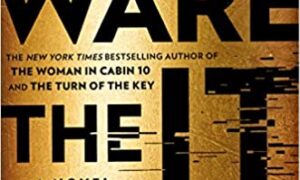 The Magic Circle by Jenny Davidson
The Magic Circle by Jenny Davidson
My rating: 2/5 cats


fulfilling my 2020 goal to read (at least) one book each month that was given to me as a present that i haven’t yet gotten around to reading because i am an ungrateful dick.
this book had so many opportunities to earn a third star cat, but it staunchly refused to even try. it could have been really good, but it was written by someone who has never met a human being, and it was impossible to get past the bloviated way the characters spoke.
the first part unfolds by way of an omniscient narrator, focusing on three female postdoc columbia students: anna, ruth, and lucy, who like to drink alcohol and chat about game theory.
anna is from denmark, and described like so:
Anna was dark-haired, ringleted, slim, her spoken English precise and so little accented that only its hyper-correctness spoke to her foreign origin.
she does, indeed, speak in a very formal way. in defining the phenomenon from which the novel takes its name:
“It could be a sacred grove or just the space in which a game is played…Even an ordinary childhood game like sardines turns a house into a magic circle. The circle might be a boxing ring or a sports arena. It’s just a way of talking about an amoeba-shaped space of play, one that’s distinctly demarcated from the ordinary world outside. Whatever happens within the magic circle is fundamentally discontinuous with the external world.
so, sure. maybe that’s how the english language sounds when it is filtered through a danish academic.
but it ain’t just anna.
here’s ruth talking to lucy at this casual girls night out at the bar:
“I’m sick of the way you always try to stave off confrontation.”
and here’s lucy:
“You two are never going to be able to make a decisive determination of the respective merits of fact and fantasy,” Lucy said.
ruth again:
“I guess it’s hard for me to give up the degree of control that would be entailed in allowing other people to play live parts in the game,” said Ruth. “The devices are entirely within my domain. I can determine each player’s experience within certain clearly defined boundaries, and players can enjoy the game on their own time and at any hour of day or night. Introducing actors risks things getting much sillier, and of course harder to coordinate.”
not the most natural dialogue, but i’m willing to entertain the possibility that douchey postdocs talk like this on their downtime, but why does this also extend to the incorporeal narrator??
Anna was flagging down the waitress. Ruth hadn’t yet finished her first drink, so Anna ordered a second vodka for herself and another pint of pale ale for Lucy, who was trying to keep an eye on her alcohol intake and had regretfully deemed beer’s caloric overload preferable to the moral hazard of excessive whiskey consumption.
no. unacceptable. to borrow a quote from david foster wallace’s excellent Quack This Way, people, unless they’re paying attention, tend to confuse fanciness with intelligence or authority.
and it never ends, this turgid word salad that believes words are good, MORE words better, MOST words best:
Though Lucy adhered to the polite fiction whereby one does not officially possess information gleaned from overhearing one side of someone else’s telephone conversation, she gathered that Ruth was agreeing to meet Mark in twenty minutes for a burger at the Heights.
puh and leez. to quote dfw again, some people get the idea that maximum numbers of words, maximum amount of complication, equals intelligence and erudition. i resent having to wade through this kind of chewy-ass prose for such a basic piece of information.
in the second part, there’s a shift, and ruth begins to take over the role of narrator. while the perspective is certainly different, as she is (ostensibly) a human involved in the story’s events, the mode of transmission is indistinguishable from the om narr, except now we get innumerable parenthetical asides:
I might complain, but something in my hard little soul (it was Lucy who had bestowed this unflattering moniker on my immaterial substance) had melted towards Anna’s game.
ruth is completely self-unaware. she observes:
“I would be honored to accompany you,” said Anna, her language as always quite formal and impeccably grammatical.
this ‘formal and impeccably grammatical’ from someone who has just mused, on the previous page:
I had been off and on either suspicious or envious of her for months now, and the Places of Power game had in certain key respects only heightened that negative affective orientation.
‘negative affective orientation?’ gack.
“I will leave the two of you to have some time alone with each other,” I said after the initial introductions had been performed.
BEEP BOOP BEEP BOOP I AM ROBOT
i do not understand this switch to first person in the second part, riddled as it is with unnecessary interjections. it’s not constructed as a diary or any other written document—presumably this is ruth’s inner monologue as she is going about the living of her life, so then why does she feel the need to include, as its own sentence: (I am only 5’3″). why is that sentence in parentheses? and to whom is she relaying this information? the reader, duh, but without ruth being given a context where she has an expectation of an audience to her private thoughts, it’s just laughably clunky storytelling.
the novel’s third act is structured as an account written by lucy for a third party, but in this second part, there’s no indication that ruth is addressing this towards anything or -one, so why so many qualifying details tucked into parentheses bloating up these sentences?
Over dinner later that evening with Mark (I had defrosted some of the pesto I’d made that summer from the basil we grew on his balcony in pots, serving it with linguine alongside a simple green salad), he and I fell into heated argument.
where’s my red pen?
Nothing like that is going to happen tonight,” I said in my most soothing voice (I am a good girlfriend, really).
to whom is she appealing?
even worse is when these meaningless asides are punctuated with exclamation marks:
I just prayed (that’s an idiom, not a literal use of the verb!) that the police wouldn’t arrive and ask us what we were doing.
these two passages are on the same page, which i guess makes it A VERY EXCITING page!!!!!!!!!!!!!
one:
The link to my site was broken, and I dithered about whether or not it would be appropriate to leave a comment. Finally I decided that it would (it wasn’t like I was criticizing what they said about me—I was just making sure that others could find the site!).
and two:
Mark still hadn’t called, and gradually the life of the Trapped publicity dissipated. Finally, he texted me around eleven thirty (a call would have been more appropriate!) to suggest that we meet for dinner at Max Soha at seven.
are these !!!!! attempts to sound more human? more casual? it doesn’t make any sense.
People who meet me at parties often seem surprised that a person who studies games should appear so self-contained and humorless. I usually counter this observation by saying that games are a serious business. Most players of games are very much in earnest, not so much frisking and frolicking as furthering their interests like rational actors in any other field. Games represent a field apart, that is all, not a field distinctly different in its priorities from any other. I say all of this in a relatively dry manner that leaves the person I am talking to quite unclear whether I mean to be funny or not.
(I am in fact a person with a sense of humor.)
i remain unconvinced.
what is most maddening are instances like this—a lovely ethereal paragraph of blessed clarity followed by horribly clunky dialogue.
The wine was as sweet and intense as winter itself, the winter of sugarplums and the concentrated essence of north. It brought warmth to my cheeks, and the feeling of Anna’s gaze upon me also made me burn.
“You have found it difficult interacting with your mother over the years, haven’t you?” she said.
“I have,” I confessed. “I always seem to fall short of her exacting standards, but I am stymied as to how to change that.”
one of these three characters is a poet, and i’m telling you, i would hate to read her poetry. incidentally, this author also writes YA, and i’m curious about what that reads like, but not curious enough to investigate it…yet.
part three is voiced by lucy, written as an account of events, whose dialogue is shaped as a play, complete with footnotes (hello to dfw again):
ANDERS: Old hat. Your standard role-playing game already relies on a grotesquely denatured sub-Shakespearean idiom.⁷
⁷ Anders actually talked like this.
that’s some pot-kettle quality scoffing, considering this is how lucy “talks:”
We slowed down only to tip more wine down our throats; I had decanted mine into a plastic sports drink bottle, so that a sympathetic officer might countenance the fiction of legality.
i think that’s enough to explain why i didn’t like this book.
take all of these complaints out of it, and there’s nothing much to discuss. there’s no drama, the ‘twist’ is utterly transparent because of the heavy-handed foreshadowing, and there’s just no story. it’s impossible to feel anything for characters that are so wooden and robotic. as much as i love megan abbott, i have no idea what she saw in this book that made her wanna blurb it:
“The Magic Circle is elegant, brutally smart, and utterly absorbing—The Secret History as directed by Whit Stillman.”
end of rant. i am grateful for the prezzie, jerri, and it WAS on my buy-for-me shelf, so it’s no one’s fault but my own, but this was a big old dud of a book.
read my book reviews on goodreads







